The Daily Music Break’s first video chat features Jeff Claassen, a trumpet player and Associate Professor of Harmony at the Berklee School of Music. Jeff provided deep insight on the great Duke Ellington.
It is interesting that one of the major accomplish with which he credits Ellington is the fact that he kept a band together for about 50 years. We look back on icons as having wholly successful careers, playing big venues and being generally being showered in adulation for the length of their careers. It’s not really that way, however. The stars – those that have long careers – have down periods. An older Johnny Cash hit a drought that lasted until Rick Rubin rightly recognized his cultural significance and resurrected him. Frank Sinatra had his down period. Louis Armstrong was thought to be out of touch for years. The list goes on.
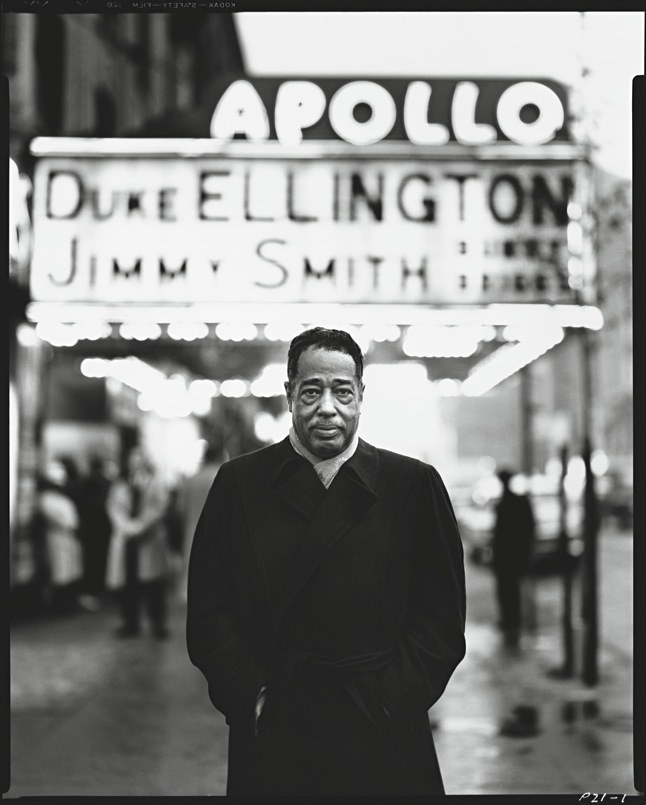
It is interesting that one of the major accomplish with which he credits Ellington is the fact that he kept a band together for about 50 years. We look back on icons as having wholly successful careers, playing big venues and being generally being showered in adulation for the length of their careers. It’s not really that way, however. The stars – those that have long careers – have down periods. An older Johnny Cash hit a drought that lasted until Rick Rubin rightly recognized his cultural significance and resurrected him. Frank Sinatra had his down period. Louis Armstrong was thought to be out of touch for years. The list goes on.
It’s not that these musicians were not as great as they now are thought to be. It’s that tastes change and leave them behind. A career should be seen in aggregate, which only is possible to do when it is over. This all means that keeping a working band together for five decades a pretty remarkable achievement. Apparently, Ellington’s side job was writing some of the greatest music in American history.
The trend in the 1950s for smaller groups. Jeff pointed out that the Ellington band played ice shows, for instance. In addition to simply finding work, Ellington had to deal with many personalities — some no doubt tempormental — logistics and everything else that comes with running a big and highly mobile organization. The includes money. Ellington had to worry about paying musicians and support staff. The overhead — instruments, the bandstand, transportation and other things — must have been great.
It was another time. The Rolling Stones, Bruce Springsteen and others essentially sit in their palaces and wait until the creative or financial spirit moves them. They go on the road and are rewarded spiritually and monetarily. There is absolutely nothing wrong with that. They earned it. The fact is, however, that it was much harder back in the day.
Thus, Duke Ellington is a giant for his ability to keep his band together as well as for his music. I’ve purposely not mentioned the music in this intro. Jeff handles that very well.
The Daily Music Break has featured Duke Ellington previously. These include a five song playlist, a version of “Mack the Knife” with Ella Fitzgerald, an excerpt from the movie “Anatomy of a Murder,” a note on the day that “I’m Just a Lucky So and So” was recorded and a performance of “Perdido” alongside Billy Taylor and the great Willie “the Lion” Smith.
Jeff sent some videos of his composition and playing. The site will feature them in the near future.
This video is far closer to Ed Wood than Martin Scorsese. I’m aware of its shortcomings. The audio is unbalanced, there is a bit of choppy editing and the software didn’t accurately switch between Jeff and me. I learned a lot and feel that the finished products will be better in the future. The interviews are fun. The editing process, however, is very frustrating for a beginner.

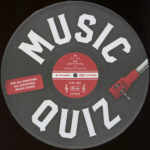



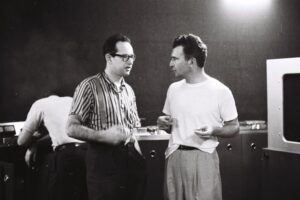
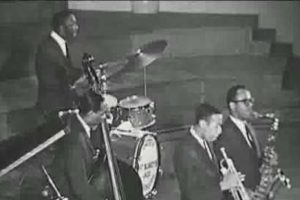
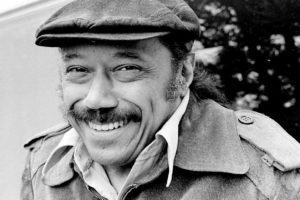










Recent Comments